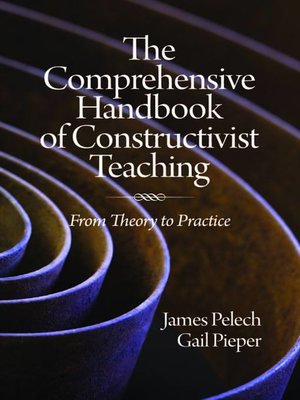The Comprehensive Handbook of Constructivist Teaching
ebook ∣ From Theory to Practice
By James Pelech

Sign up to save your library
With an OverDrive account, you can save your favorite libraries for at-a-glance information about availability. Find out more about OverDrive accounts.
Find this title in Libby, the library reading app by OverDrive.



Search for a digital library with this title
Title found at these libraries:
| Library Name | Distance |
|---|---|
| Loading... |
While many people talk about the Constructivist philosophy, there has not been a publication that provides a detailed description of what a Constructivist classroom sounds like and looks like. This book fills that void by examining the philosophy, translating it into teaching strategies, and providing over forty examples. These examples come from the elementary level up to and including the collegiate level, and include all content areas. These examples show how the Constructivist educator uses the linguistic mode, the visual mode, and the kinesthetic mode to create a class environment in which the Constructivist philosophy flourishes. Examples of student work are provided; the book also includes chapters on note-taking, Problem-Based Learning (PBL), action research, and other Constructivist resources. Written in user-friendly form, this book presents a concrete and step by step approach for translating the Constructivist philosophy into classroom practice. This book is intended for every Constructivist researcher, practitioner, and teacher-educator. The researcher and teacher-educator will benefit from topics such as the history of Constructivist thought, the principles of Constructivism and action research. This book is more than a list of recipes, and this will be beneficial to the practitioner. Starting with the principles of Constructivism, and bridging to four basic teaching strategies, the practitioner is guided on how to use different learning modes and "meta-strategies" to create a true Constructivist practice. An educator's life is made up of one's philosophy, teaching principles, daily strategies, resources, and research tools. This book provides an in-depth look, from the Constructivist perspective, at each one of these components. In every sense of the word, this book is truly "comprehensive."







